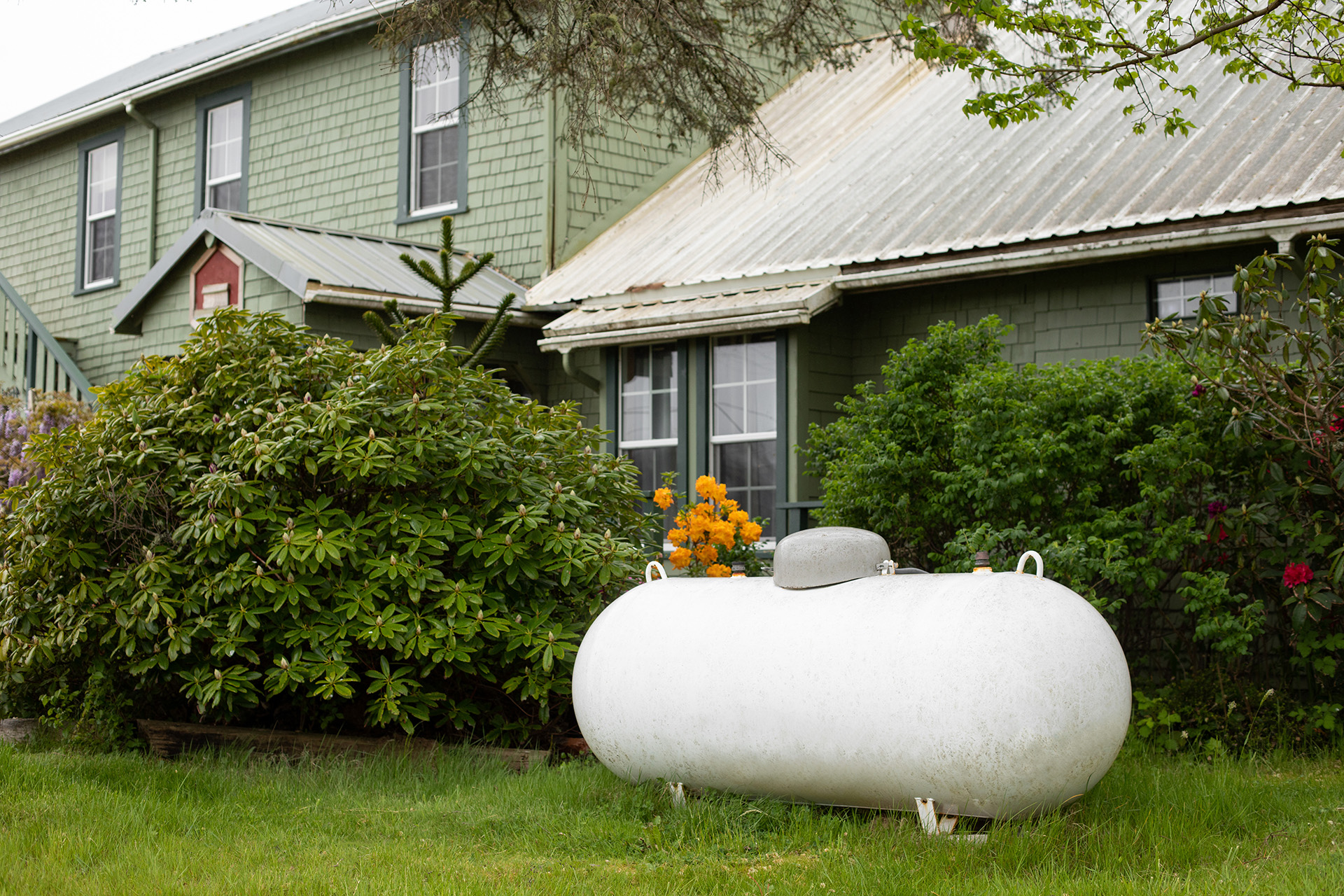
Posted: August 4, 2025
 Your propane tank works hard behind the scenes to provide the energy to heat your home and water, cook your food, and more. But like any equipment, propane tanks don’t last forever. Knowing when to replace your tank can save you from unexpected interruptions, safety hazards, and costly repairs down the line.
Your propane tank works hard behind the scenes to provide the energy to heat your home and water, cook your food, and more. But like any equipment, propane tanks don’t last forever. Knowing when to replace your tank can save you from unexpected interruptions, safety hazards, and costly repairs down the line.
Most homeowners don’t think about their propane tank until something goes wrong. By then, you might be dealing with a safety issue or an emergency replacement situation. Recognizing the warning signs early helps you plan ahead and ensures your family’s safety and comfort.
Below, we’ll walk you through five key indicators that your propane tank needs replacement, plus practical advice on what to do next.
Before diving into the warning signs, it’s helpful to understand how long propane tanks typically last. Most residential propane tanks have a service life of 20 to 30 years, depending on usage, maintenance, and environmental conditions.
The lifespan varies based on several factors:
Even with proper maintenance, all propane tanks eventually reach the end of their useful life. The key is recognizing when that time has come.
Rust is propane tank enemy number one. While surface rust on the exterior might seem like a cosmetic issue, it can indicate deeper problems that compromise tank integrity.
What to look for:
Small rust spots can often be cleaned and treated, but extensive corrosion is a different story. If rust covers more than 20% of the tank surface or if you notice deep pitting, replacement is necessary. Rust weakens the tank walls and can eventually lead to leaks or structural failure.
Pay special attention to the bottom of your tank, where moisture tends to collect. This area is particularly susceptible to corrosion and can be harder to inspect regularly.
Physical damage to your propane tank is never something to ignore. Even minor damage can affect the tank’s ability to safely contain pressurized gas.
Inspect for these issues:
Propane tanks are designed to specific pressure tolerances. Dents and cracks create weak points that can fail under pressure. Even if the damage seems minor, it can worsen over time, especially with temperature changes that cause the tank to expand and contract.
If you notice any physical damage, have it inspected by a professional immediately. Some minor dents might be acceptable, but cracks or significant deformation usually require tank replacement.
A properly functioning propane tank should be completely sealed. If you’re detecting gas odors or experiencing frequent leaks, your tank may be compromised.
Signs of propane leaks include:
If you suspect a propane leak, prioritize safety. Turn off the gas supply at the tank, avoid flames or sparks, and contact a professional immediately. Never attempt to repair a leaking tank yourself.
Occasional minor leaks at connections might be fixed with new seals or fittings. However, leaks from the tank body itself indicate structural problems that require replacement.
Propane tanks must meet specific safety standards and certifications. Over time, these certifications expire, and older tanks may not meet current safety requirements.
Check these dates:
Tanks older than 20 years should be carefully evaluated, even if they appear to be in good condition. Safety standards have evolved, and newer tanks offer better protection. If your tank is approaching or past its recommended service life, replacement is wise.
Some insurance companies and propane suppliers may refuse to fill or service tanks that are too old or lack current certifications. Planning ahead prevents these complications.
Sometimes the signs are subtle. Your propane tank might be telling you it needs replacement through decreased performance rather than obvious damage.
Performance indicators:
Why performance declines:
Internal corrosion, valve wear, and other age-related issues can affect gas flow and pressure regulation. While some performance issues stem from appliance problems, the tank itself may be the culprit.
If multiple appliances are experiencing problems, or if performance issues persist after appliance maintenance, consider having your tank evaluated by a professional.
When replacement time comes, selecting the right tank size and type is crucial for optimal performance and value. Here are some factors to take into account:
At Kimlin Energy, we carry a full range of propane tank sizes up to 1,000 gallons. Our experts will make sure that you have the proper propane tank size for your propane needs so you don’t need too-frequent refills.
Many homeowners benefit from propane tank leasing rather than purchasing. Leasing offers several advantages:
Proper installation is critical for safety and performance. Propane tank installation involves gas line connections, pressure testing, and compliance with local codes.
Why professional installation matters:
For homeowners in New Paltz, NY, and nearby Hudson Valley towns, Kimlin Energy provides quality propane tank installation and service by experienced, knowledgeable service technicians. Our team understands local requirements and has the expertise to ensure your new tank operates safely and efficiently.
Regular propane tank inspection and maintenance prevent small problems from becoming major safety hazards. Schedule annual inspections with qualified technicians, and don’t wait if you notice any of the warning signs we’ve discussed.
Remember that propane tank replacement is an investment in your family’s safety and comfort. While the upfront cost might seem significant, the peace of mind and reliable performance of a new tank make it worthwhile.
If you’re experiencing any of these warning signs, or if your tank is approaching its recommended replacement age, contact the professionals at Kimlin Energy. We’ll evaluate your current tank, recommend the best replacement options, and ensure proper installation for years of safe, reliable service.